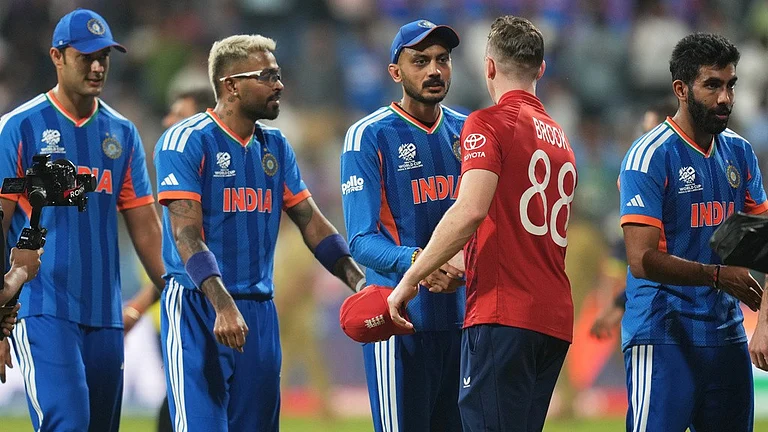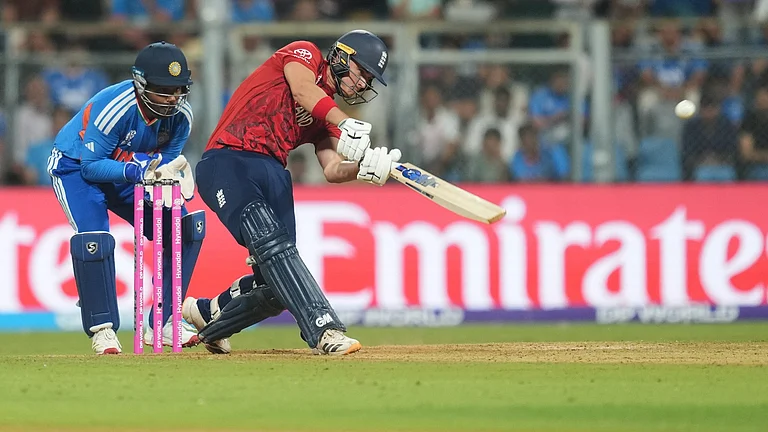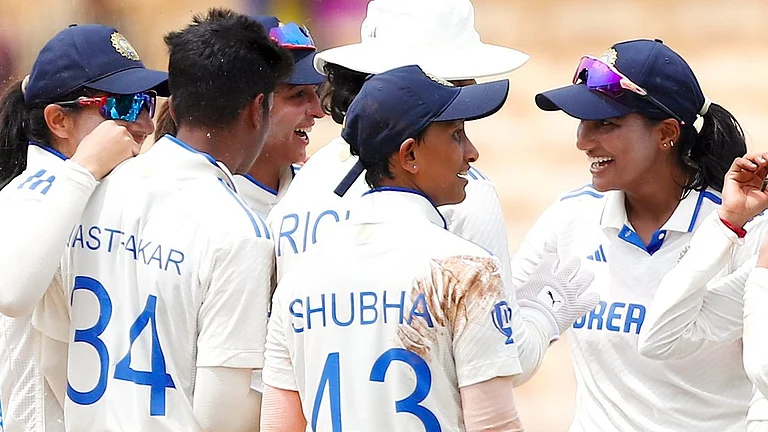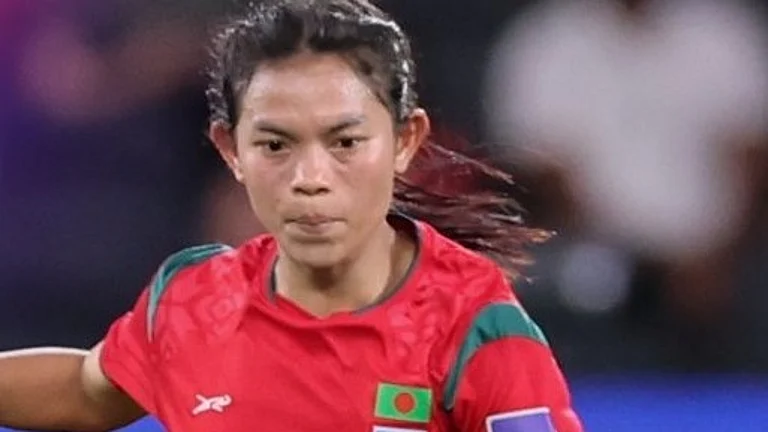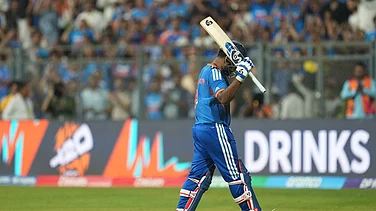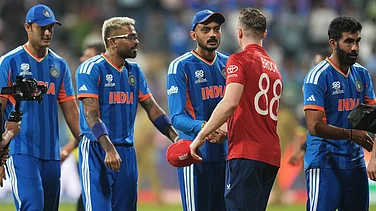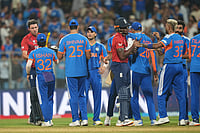“Enjoy yourself and don’t think about anything else”.
Every sportsperson, from a beginner to an elite star, has received this simple suggestion from coaches, mental trainers, and even their parents, throughout their career. (More Sports News)
Kapil Dev, the legendary Indian cricketer and the captain of the 1983 World Cup winning side, probably received and gave this advice multiple times himself.
But recently, the 63-year-old left everyone wondering whether he understood the spirit behind this advice when he sounded dismissive about those talking about pressure of performance during a chat on Mental Health Day.
“I hear a lot of times on TV that there’s a lot of pressure on players to play in the IPL. Then I only say one thing, don’t play,” said Dev.
“If a player has passion, there will be no pressure. I can’t understand these American terms, like pressure, depression. I’m a farmer and we play because we enjoy the game, and there can’t be any pressure while enjoying the game,” he added.
What Dev failed to gauge while making this argument is that it is not the act of playing the sport, but what is at stake if one fails, which builds the pressure on sportspersons.
Once they begin to climb the ladder of success, sportspersons are not only expected to perform at the optimum level, but even behave like role models at all times and be perfect brand ambassadors of the sport. Every action of theirs, on and off the field, is scrutinised.
It was this pressure that got to four-time major winner and former world No. 1 tennis player Naomi Osaka, who first spoke of mental health issues after boycotting post-match media duties and withdrawing from the French Open in May this year.
Among Indian female athletes, with the exception of stars like Mithali Raj, Harmanpreet Kaur, Sania Mirza, PV Sindhu, Saina Nehwal, Jwala Gutta and now wrestler Vinesh Phogat, not many are subjected to such a scrutiny from the media and fans on their performance and personal life. But that does not mean they don’t have to deal with mental challenges.
“Women have a tendency to overthink. We are emotional about the smallest of things. This is in all walks of life, not just sports. This generally puts more pressure,” says Rahi Sarnobat, the first Indian woman shooter to win an Asian Games gold.
Sarnobat went through difficult times after twin blows caused her to miss the 2016 Rio Olympics. In 2015, her coach and father figure, Anatolli Piddubnyi, passed away. Then she suffered an elbow injury.
It forced her to sit at home for almost a year, which is when desperation set in and led to more anxiety. Only when she could resume her career did she feel better again as Sarnobat had never been out of the National squad for this long ever since she made her maiden appearance for India on the international stage.
Gayatri Vartak, former international badminton player and now a sports psychologist working with top sportspersons, explains the point further.
“Most of the times, male players will just follow instructions and do things as told to them (by coaches). But women want to understand the why, at times overanalyse,” she says. “There is not enough space to ask these questions in the current set-ups and that leads to anxiety.”
Even in this day and age, menstruation cycles and their effect on performance rarely gets talked about while planning training and tournament schedules, or while assessing performance.
“Even we cannot understand how our body is going to react on those days. It can be different every time and we have to deal with that anxiety every month,” says badminton player Ashwini Ponnappa, the 2010 CWG women’s doubles gold medallist.
Ashwini says that though things have improved when it comes to coaches dealing with female sportspersons, it is still difficult to discuss personal details with most of them.
“In today’s day and age, when coaches are still telling young girls what to wear and what not to wear, and subtle judgements are passed on how their body looks, it’s difficult to have that comfort level to discuss such topics. This is when you feel the need for a strong woman coach or support staff,” she says.
Ashwini points out that there is also the problem of self-shaming, as everyone wants to look perfect. That stress also adds up. “We put on weight when we are stressed out,” she says.
This further affects the menstruation cycle and leads to even more stress.
Other major causes of mental health challenges for female athletes are concern over their physical and mental safety when on the road for camps and tournaments, and the anxiety over a ticking body clock as they hit their late 20s. This is because by that age, they want to settle down in their personal life too.
Ashwini, who married businessman and model Karan Medappa in 2017, and is still going strong on the international circuit, says she is lucky that she has her family’s support.
“I want to take more responsibility and balance my family life. For this we need coaches who understand our situation. If our sincerity gets questioned every time we miss training because of family reasons, then it doesn’t help,” she says.
“Not everyone can be Sania Mirza or Dipika Pallikal, who had twins and ended up playing Commonwealth Games. That can’t be a benchmark.”
Vartak insists it’s a tricky situation as women are striving for gender equality even in sports, at the same time need to be treated with a bit more compassion when it comes to emotional stressors. “Maybe, we need to sensitise everyone on this,” she says.
Social media and the need to stay relevant on these platforms for branding and commercial reasons is another challenge many up and coming sportspersons have to deal with now.
Knowing how people are reacting to every post can become an overwhelming need.
Rahi narrates an incident during a selection trial where her young opponent, who was in the race to be picked in the Indian team, checked her Facebook notifications between two series.
Tokyo Olympics quarterfinalist boxer Pooja Rani is very active on Instagram and has over 86k followers. She admits that people following her stories makes her happy, but insists that she has now learnt to not think too much about the feedback.
“People don’t think much before commenting whether we win or we lose. It’s important not to think a lot about it. I just ensure that I don’t post anything that can become controversial,” she says.
Everyone Outlook spoke with insisted that pressure and anxiety were part of every sportsperson’s life, be it a male or female. But there are definitely certain factors that affect female athletes more and being sensitive to those could go a long way in helping them deal with situations better and perform at their best.



